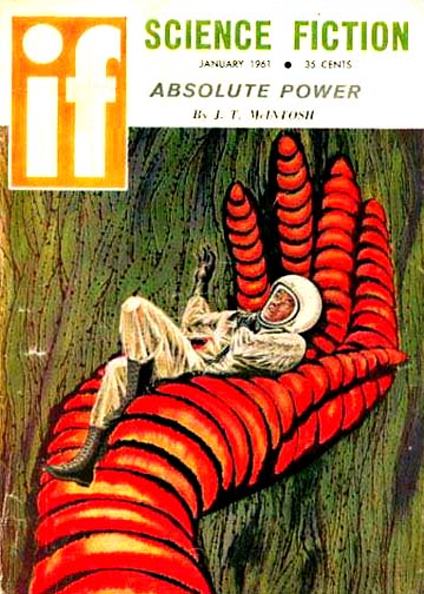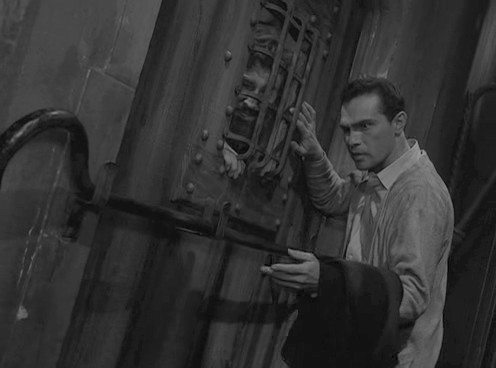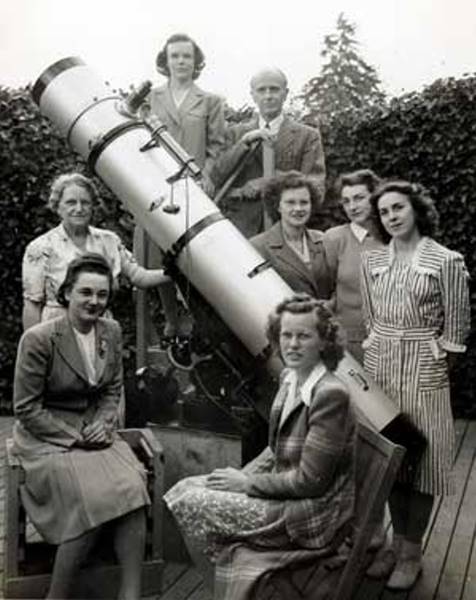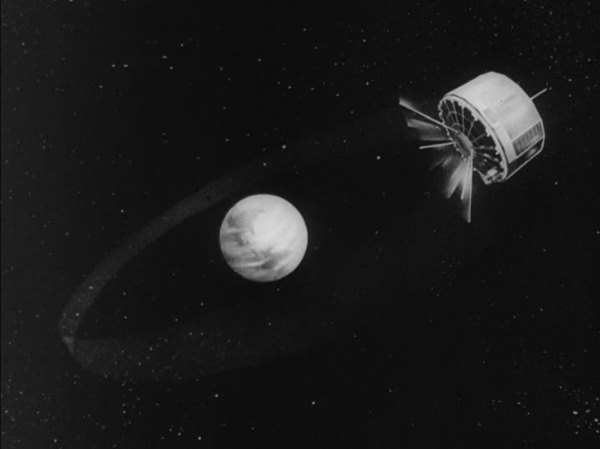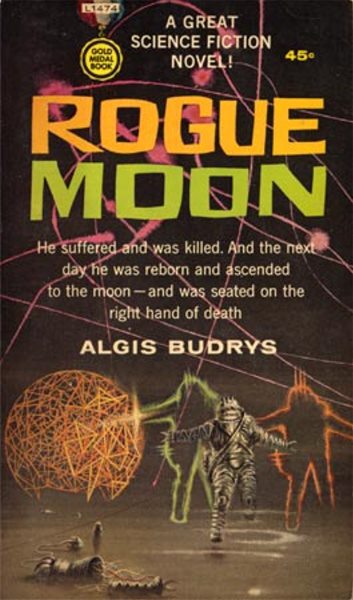
I don't know who Ben Barzman is, but he's written an interesting little book.
The synopsis makes the novel sound as if it is composed of more cheese than the Moon. 186 million miles away, on the opposite side of the Sun, is another Earth. It is a virtual twin, to the point of having the same landmasses, the same biological history, even the same human history up through the end of The Great War. Thanks to their not having a Second World War, they are far ahead of us in the social, medical, and energy sciences (though not, apparently, in the rocket and atomic sciences). Scientists of our Earth manage to create a new ray, a ray so powerful that it becomes a living, intelligent entity, which facilitates contact with this other Earth. The counter-Earth responds by sending a delegation to our planet to determine whether or not we are worthy of receiving their technological gifts.
Sounds silly, doesn't it? Like something that might have been written in the '30s or earlier. And, in fact, if you read the story just for the science fiction, you'll be disappointed. I suspect Barzman is not a scientificitioneer by trade. Luckily, what he gives us goes far beyond the basic plot.
This tale really is an exploration of alternate timelines, of personal and global what-ifs. Taken that way, it's quite a beautiful story. The first half of the book has virtually no s-f trappings at all. Instead, we get a gentle, self-deprecatingly witty autobiography of a Canadian fellow who ventures off with a friend to see the world on the eve of World War 2. He has a passionate affair with Marie-Ange, a young French girl in St. Lo (while his friend, Wilfred, maintains an above-board relationship with her). War breaks out and he and Wilfred become a two-person bomber crew, savaging the very French countryside they had enjoyed so recently. During a brief break in England, the Germans devastate a nearby block in their nightly Blitz, and the narrator rescues a shell-shocked young girl, who ends up being adopted by a Texan biophysicist. Wilfred and the narrator are later shot down; the event is fatal to Wilfred and permanently (though not severely) disabling to the narrator.
After the War, the protagonist returns to St. Lo to find Marie-Ange. She is dead, killed in the war during an Allied bombing raid, though not by one of his bombs. The narrator then dispiritedly drifts through life, desultorily reporting from Paris for his tyrannical Uncle Derbet's newspaper. Until Jane, the girl he rescued during the War, comes to visit.
She is a brilliant biophysicist now, and lovely to boot. She has come to Paris to work with the famed but reclusive scientist, Dr. Morescu, who lost his Jewish wife and child to the Nazis during the War. Jane and the narrator fall in love, but their ardor is tempered by a mental block she developed as a result of losing her entire family in the Blitz incident. This prevents them from any serious sort of physical consummation.
In the end, the novel is an exploration of the lives of these somewhat damaged people in a world still reeling from the last War. Their turning point, the moment of healing, comes in their interaction with the other Earth. In the counter-Earth, Wilfred and Marie-Ange never died. The narrator never went to war. Jane's family is alive and well, as is Dr. Morescu's. Moreover, the other world has benefited from the millions of souls who never perished during WW2: artists, scientists, doctors. Yet, it is not without its share of drama. When the two worlds interface, we see what might have been and get clarity on what has actually happened. And without spoiling too much, there are happy endings all around.

Taken as a sideways-in-time story, it's quite effective. Barzman writes in a droll, contemporary style that engages. Twinkle's characters are well-drawn, and the world they live in are refreshingly removed from the rather constrained, conservative landscapes we normally encounter in both our lives and our science fiction.
Four stars.


